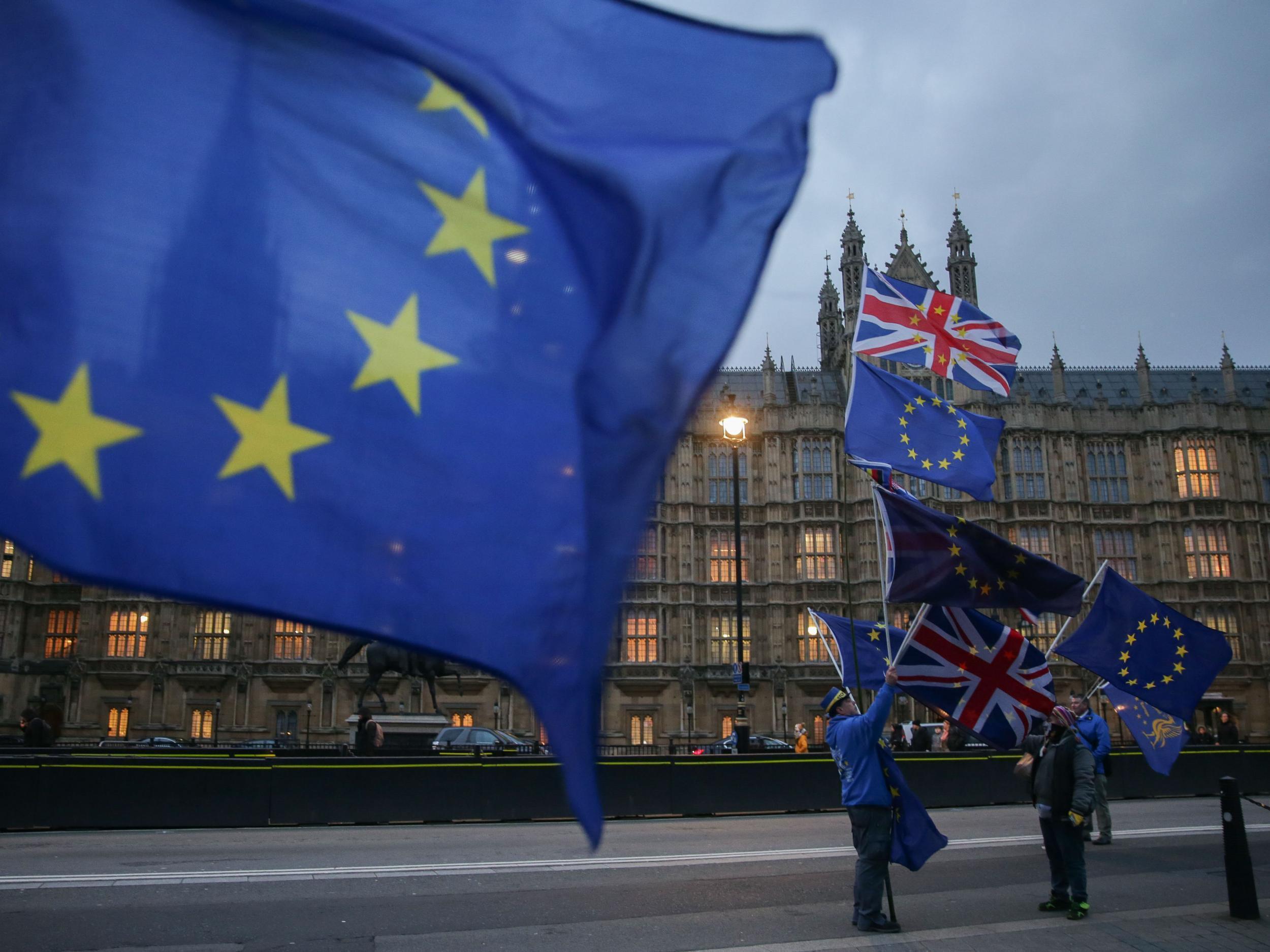Theresa May abandons another Brexit red line by agreeing EU citizens arriving during transition period can stay
Prime Minister vowed the rights granted had to be 'different' - but has given way to pressure from Brussels

Your support helps us to tell the story
From reproductive rights to climate change to Big Tech, The Independent is on the ground when the story is developing. Whether it's investigating the financials of Elon Musk's pro-Trump PAC or producing our latest documentary, 'The A Word', which shines a light on the American women fighting for reproductive rights, we know how important it is to parse out the facts from the messaging.
At such a critical moment in US history, we need reporters on the ground. Your donation allows us to keep sending journalists to speak to both sides of the story.
The Independent is trusted by Americans across the entire political spectrum. And unlike many other quality news outlets, we choose not to lock Americans out of our reporting and analysis with paywalls. We believe quality journalism should be available to everyone, paid for by those who can afford it.
Your support makes all the difference.Theresa May has abandoned another of her Brexit “red lines”, by agreeing that EU citizens who arrive during her planned transition period can settle in the UK.
The Prime Minister had vowed to fight Brussels’ demand for residency rights be granted to its nationals who move in the period – of about two years – when the UK will still abide by EU rules.
In January, she insisted the rights offered had to be “different” because those people would be “coming to a UK they know will be outside the EU”.
But Downing Street has now quietly dropped that stance, after the EU warned it would prevent talks beginning on a future trade deal.
An announcement, posted on the Government’s website, said: “EU citizens and their family members will be able to move to the UK during the implementation period on the same basis as they do today”.
The move is certain to further enrage hard Brexit supporters on the Tory benches who had insisted the EU’s proposal for the transition period was unacceptable.
But it was welcomed by the British Chambers of Commerce, who said business leaders would be “pleased to finally have answers” on the status of EU workers.
“Business will be pleased that during a time of record-high labour shortages, the Government is showing a pragmatic approach to immigration,” said Adam Marshall, the BCC’s director general.
“Firms will want to see this realism embedded in future migration policy when the UK leaves the EU.”
The U-turn means arrivals during the transition will be allowed to apply for indefinite leave to remain, and given time to earn the five years’ residency in order to qualify, although not for the “settled status” offered to those arriving before March 2019.
And the Government is still insisting that they will not enjoy the same rights to bring in family members to join them as EU nationals already resident in Britain and granted “settled status”.
Instead, they will have to pass a minimum income threshold test, which is currently set at £18,600 for British, but not EU, citizens.
However, it is unclear whether the EU will accept that, after Guy Verhofstadt, the European Parliament’s Brexit coordinator, said the idea of two different set of rights was “not negotiable”.
The announcement says the concessions have been made because “it is important to provide certainty to business and those EU citizens who wish to move to the UK during the implementation period as to the terms under which they will be able to remain in the UK and make a life here once the period is over”.
The Prime Minister’s objection to granting residency rights for arrivals after Brexit Day, in March 2019, had also held up a streamlined application system for EU nationals already in the UK.
A digital app is planned to replace the current, daunting 85-page form which millions of EU citizens would otherwise be required to fill in in order register to stay.
It had to be delayed when the Prime Minister insisted on different rules for later arrivals, because the Home Office was faced with the headache of operating two different systems.
Join our commenting forum
Join thought-provoking conversations, follow other Independent readers and see their replies
Comments